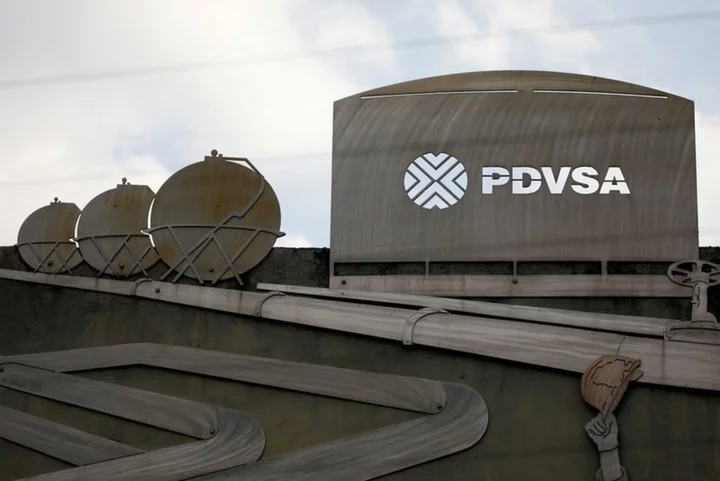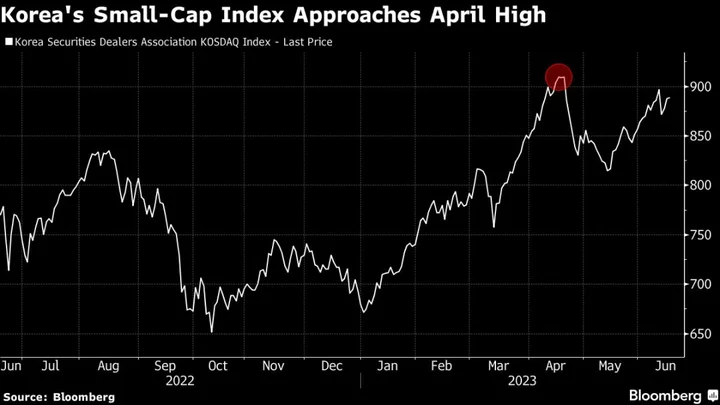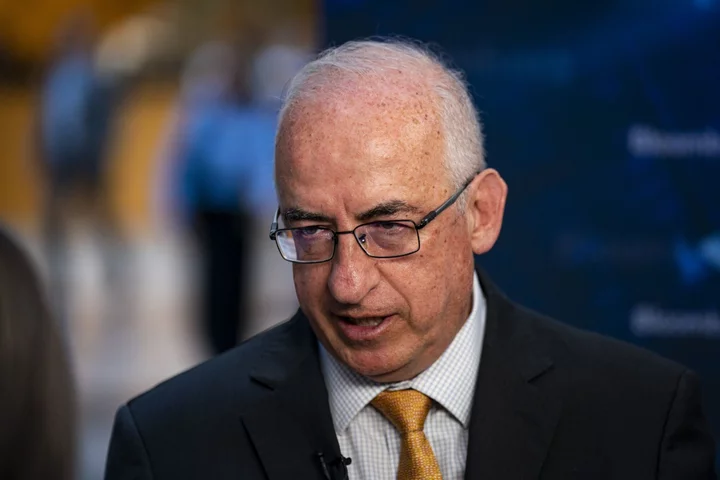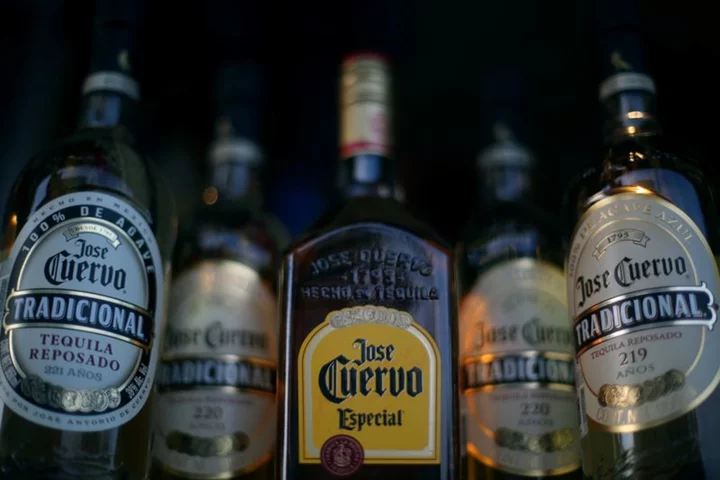By Marianna Parraga, Laura Sanicola and Arathy Somasekhar
HOUSTON Global energy traders are emerging as early buyers of Venezuela's stocks of crude and fuel oil following last week's easing of U.S. energy sanctions, according to people familiar with the matter.
U.S. sanctions that were in place on Venezuela since 2019 largely blocked state-run oil company PDVSA from exporting to its chosen markets.
That changed last week, but Washington's six-month relaxation of the measures is too limited to spur new crude production.
It has offered a tantalizing opening for spot sales by PDVSA and the reactivation of some supply contracts that could boost revenue, the people said.
Trafigura last week negotiated a chartering contract for the Bermuda-flagged Suezmax Stena Sunrise to transport a 1 million-barrel cargo of Venezuelan fuel oil in November from Venezuela's Amuay ship-to-ship area, according to two people close to the deal.
PDVSA also is in talks with Mercuria Energy and Sahara Energy on spot sales, the sources said.
Mercuria and Sahara did not reply to requests for comment, while Trafigura declined to comment.
PDVSA did not reply to requests for comment, but CEO Pedro Tellechea last week said on social media the U.S. license "suspends a widespread siege" on the company.
REFINERS SEEKING OIL
U.S., European and Asian refining firms including Reliance Industries, Tipco Asphalt, Valero Energy, PBF Energy, and Eni also are in talks with PDVSA to resume or expand imports of Venezuelan crude.
Valero, Reliance and Tipco did not reply to requests for comment. A PBF spokesperson said the company does not comment on activities it considers business confidential.
Eni expects the sanction easing should allow it "to increase the flexibility and effectiveness of debt collection activities" through oil-for-debt swaps in place since last year, a spokesperson said last week.
The Italian company and Spain's Repsol have been in negotiations with PDVSA for months to expand gas output in Venezuela.
Eni also hopes to ramp up oil production and resume sales of popular crude grade Corocoro, which used to be exported to the U.S., according to other people familiar with the matter.
French firm Maurel & Prom, which bought Shell's assets in Venezuela, said this month it had asked the U.S. before the sanctions were eased to take Venezuelan oil for debt repayment.
PDVSA currently has 30 million barrels of crude and fuel in onshore and floating storage, still a large volume though below the peak of more than 40 million barrels in 2019, according to data from commodity intelligence firm Kpler.
VESSELS, QUALITY, TERMS
Winning clearance from buyers' legal and compliance departments, and renegotiating prices, will require more work, the people added.
Some companies have recently appealed to the U.S. Treasury Department for guidance on potential deals, one of the people said.
Traders looking to snap up spot cargoes face a long-standing unwillingness by vessel owners to load in Venezuela, which has elevated freight tariffs and imposed special contract clauses for "war zones".
Many potential customers, especially on the spot market, are being asked to prepay for their cargoes, the people said. PDVSA this year revamped its trading business and finances to avoid failed payments after suffering multi billion-dollar losses.
Crude quality problems coming from PDVSA's deteriorated infrastructure also would be more difficult to solve and could continue forcing price discounts, the sources added.
PDVSA has not recovered access to pricing services and key software suspended as part of the U.S. measures, company sources said.
(Reporting by Marianna Parraga and Arathy Somasekhar in Houston and Laura Sanicola in Washington)









